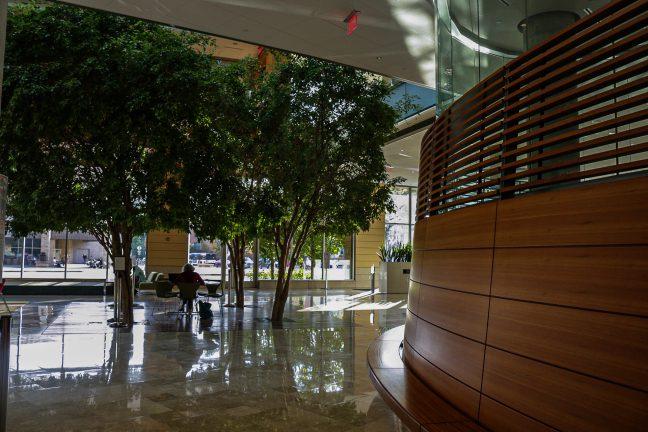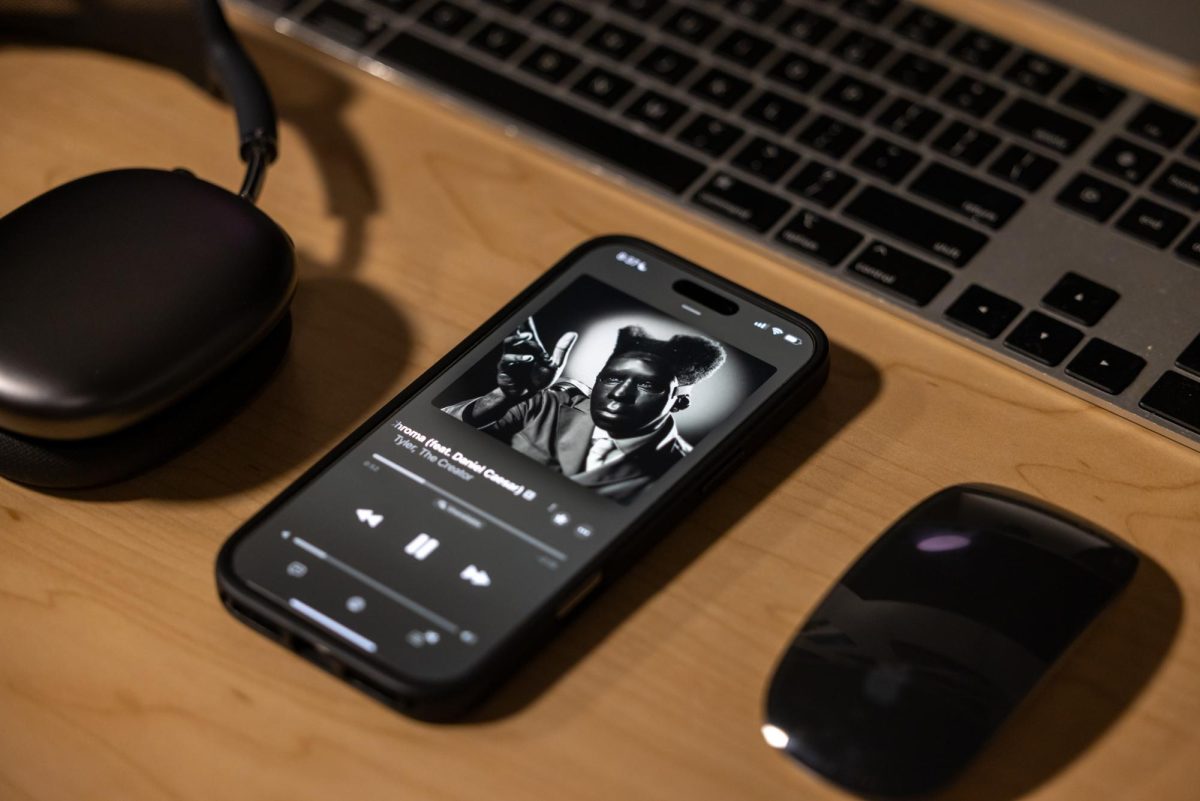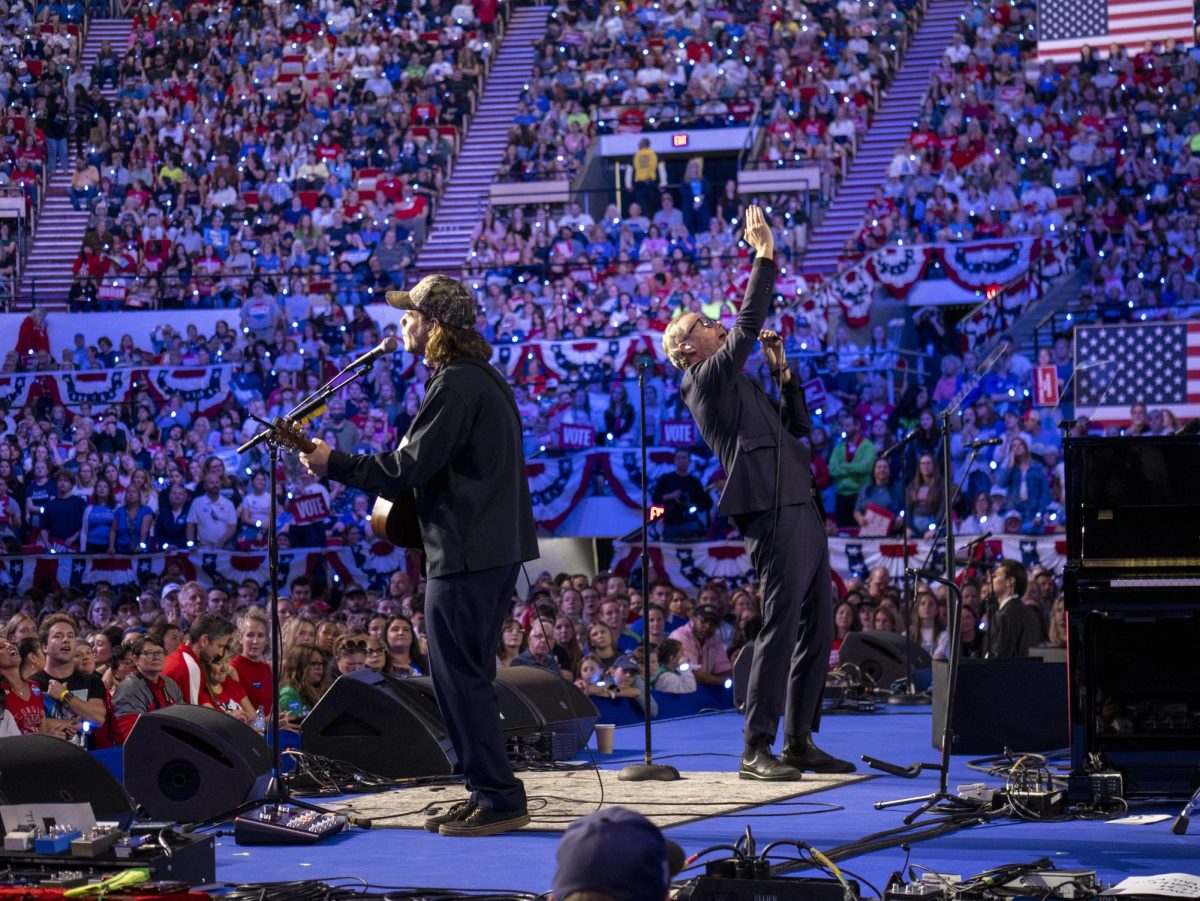Storytelling holds a place of importance in the culture and existence of Indigenous people. Stories act as the continuance of culture, language, ancestry and sovereignty, which is why three Indigenous storytellers gathered last Thursday night to share their stories with around 100 Madison residents and students.
The event, the 24th Annual Evening of Storytelling, was held by the University of Wisconsin Department of American Indian Studies at the Discovery Building. The audience gathered at H.F. DeLuca Forum, facing a ring of drums and a stage where stories would come to life. Wunk Sheek, the UW Indigenous Student Organization, introduced each speaker.
Denise Wiyaka, director of American Indian Studies at UW, introduced the event. She welcomed the audience by saying “Miigwech,” an Ojibwe greeting that translates to “thank you.” She explained that stories are vital to bringing people and generations together to form a community.
For Indigenous communities, it is important to tell stories in their native languages to maintain the nuances of the story and continue the practice of native language. So, each storyteller told their story in their native language, and then in an English translation.
The first speaker, Janice Rice, is a citizen of the Ho-Chunk Nation and the Fall 2022 Elder-in-Residence at UW. Rice switched between the smooth and sweeping Ho-Chunk language and English to tell the historical love story that defines Dejope and Lake Mendota.
The second speaker, Wayne Valliere from the Lac du Flambeau Ojibwe tribe, told the dynamic and enchanting story of how Waaswaaganing, or Lac du Flambeau, was named. When he isn’t sharing stories, Valliere is widely recognized for crafting birchbark canoes and other traditional arts.
The final speaker was Čhaŋtémaza (Neil McKay), who is Bdewakantunwan Dakota and a citizen of the Spirit Lake Nation. He told an energetic and humorous story about the trickster Iktomi. His vibrant gestures and speaking ability kept the audience captivated as he spoke in both Dakota and English. He concluded his story by reminding the audience that stories are teachings and that you need to decide what you learn from them.
Madtown Crier: Spring semester preview, events to look forward to
Opening and closing the event were songs by the Wisconsin Dells Singers, an Indigenous drumming and singing group. Their circle of drums sat at the front of the room, where their rhythm expressed celebration and respect. The reverb of the drum rang in the audience’s chests and imparted in me a strong reverence for their meaningful music.
The event concluded with the “Love one another song,” where the singers asked the audience to form a circle and hold hands as they played, reinforcing the important relationships between Indigenous and non-Indigenous people. The members of the audience got up from their seats and moved to the edges of the room, linking hands to form a large circle. As the thunder of the drums built up and dropped down, the audience began moving, stepping clockwise to the rhythm of the music. Filling the whole circumference of the room, we circled slowly until the song ended with a final crash of the drums.
It was a privilege to be invited to participate in this celebration. The Evening of Storytelling Event will be back next winter to continue these cultural and community connections by sharing more music, stories and culture.














